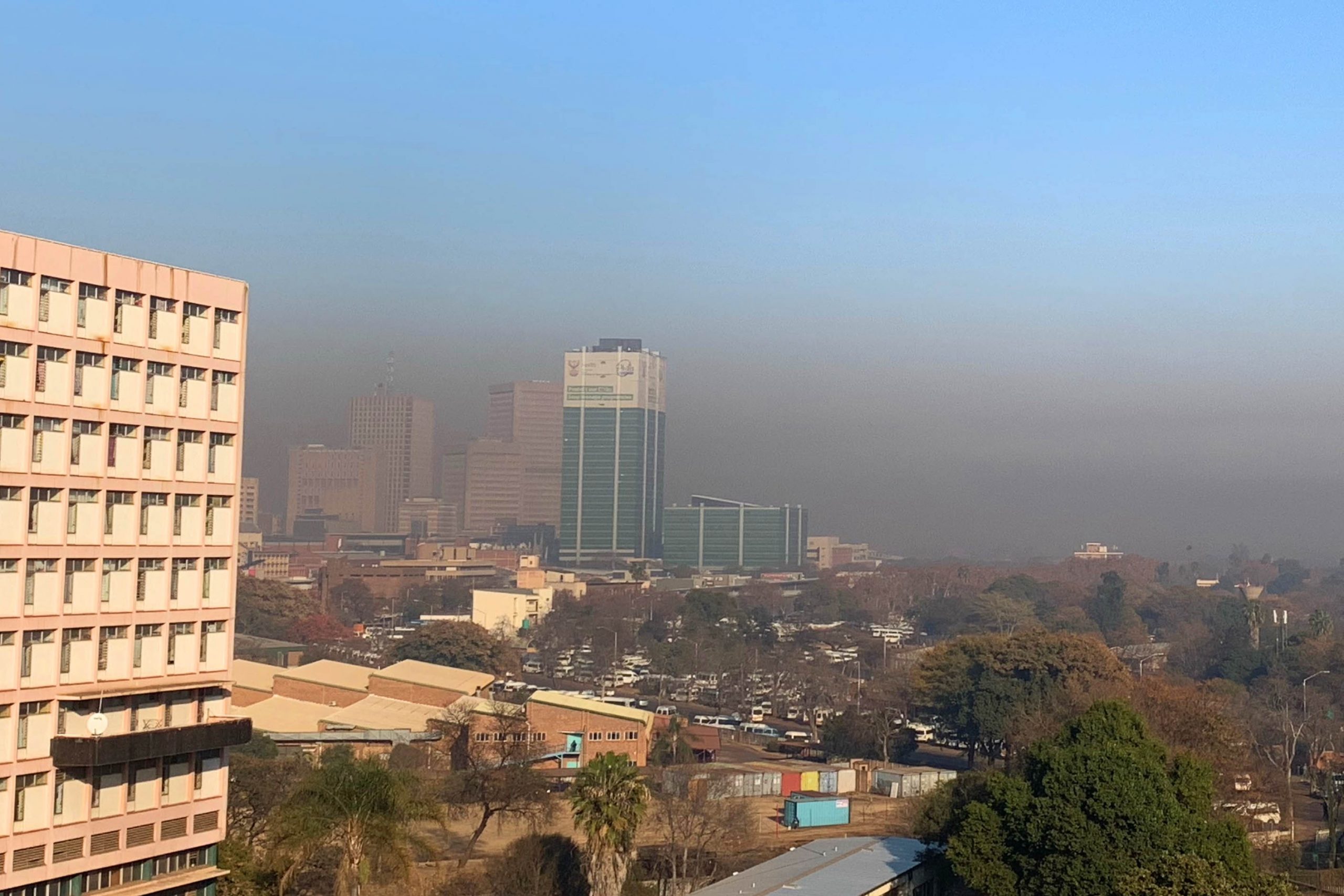SA failing to control air pollution
Fifteen years after South Africa passed new air quality laws, government is failing to monitor or manage air pollution, industries are taking advantage of loopholes and the public’s health is faili…
Author:
26 September 2019

South Africa’s efforts to reduce human suffering and death from widespread air pollution remain pretty much in a shambles, partly because most politicians remain ignorant or uncommitted to tackling the problem head-on.
This is the charge by two scientists in a hard-hitting assessment of the state of the country’s air pollution control and monitoring framework, published in the latest issue of the South African Journal of Science
Though they do not use the term “shambles”, there is no mistaking the robust criticisms that emerge in the South African scientists’ assessment of the National Environmental Management: Air Quality Act, a set of laws passed in 2004 to replace the weak and outdated pollution prevention laws that dated back to 1965.
South African Weather Service meteorologist, chemist and environmental scientist Cheledi Tshehla and South African Medical Research Council senior specialist scientist Caradee Wright say that 15 years after the new legislation came into being, the major health problems caused by air pollution “are far from being solved”. This is especially in the country’s three industrial air pollution hotspots: the Vaal, Highveld and Waterberg, which are considered “priority areas”.
Criticising local, provincial and national government for the failures, they also call for a new range of measures to be put in place. These include educating politicians and councillors, enforcing and reforming existing laws, appointing expert panels and changing the school syllabus so that children learn from junior school about the dangers of air pollution.
“The political buy-in of all spheres of government is needed to ensure that environmental issues are at the top of the agenda,” they say, suggesting specifically that this should involve educating politicians about air quality, especially at local and district level.
Credible data
As things stand, only about 40% of the country’s municipalities are bothering to monitor some form of air pollution, say Tshehla and Wright, with KwaZulu-Natal and Mpumalanga district municipalities the worst among the laggards.
They say that of the 278 municipalities across the country, only 121 government-managed air monitoring stations appear to be supplying regular information to the South African Air Quality Information System. Designed to ensure the widespread spatial coverage necessary for effective compliance monitoring, there was a concern that “only a few” of the stations in the system provided credible data that could be used for scientific research and policy development.
Related article:
The Department of Environmental Affairs – now the Department of Environment, Forestry and Fisheries – was in the process of reviving “stranded” municipal air quality monitoring stations to increase the number of stations reporting to the air quality information system. Privately owned stations had also been targeted to report live data on the system.
Though the department was mandated to develop, review and revise systems and procedures to ensure compliance with air quality standards, provincial environment departments are responsible for monitoring ambient air quality in their provinces as well as the performance of municipalities in implementing the air quality act.
Recent evidence collected while developing plans for Mpumalanga suggests that the decentralised approach to air pollution control is “not effectively managed, with most local authorities not performing this function due to several constraints”.
Regulatory ‘loophole’
Noting that air pollution has no boundaries and that harmful pollutants can be transported to distant regions of the country, Tshehla and Wright say that none of the three spheres of government has undertaken a formal study to identify and apportion sources of air pollutants.
The government established the Environmental Management Inspectorate – environmental enforcement officials from different government departments known colloquially as the Green Scorpions – to monitor and hold polluters accountable. But it appears that the regulatory authorities have not been scrutinising compliance reports from industries to look at root-cause analyses, following up on non-compliance or doing trend analyses of the reports to check consistency.
“In a number of DEA [Department of Environmental Affairs] Implementation Task Team meetings, industries have mentioned that they submit reports to regulatory authorities but their reports are not attended to, nor do they receive feedback from authorities. The response from authorities was that there are not enough personnel to study the reports.
“This situation presents a potential loophole that industries may have identified within the regulatory framework and, as such, provides an opportunity for non-compliance with the minimum emissions standards by industries.”
Mining emissions
Wright and Tshehla say the government has not done a cost-benefit analysis since 2004 to determine the impact of air pollution on the economy of South Africa.
“Some industries in South Africa have been applying for the postponement of minimum emissions standards for several years. Furthermore, there has not been projected cost-benefit analyses on how much will be saved by the country if air pollution was reduced to acceptable limits by complying with the minimum emissions standards and ambient air quality standards.”
They hint at the fact that there is still a fox-in-charge-of-the-henhouse scenario in controlling air pollution from mining operations.
“ln terms of mining, the Department of Mineral Resources [now the Department of Mineral Resources and Energy] is responsible for issuing Atmospheric Emission Licences and granting environmental authorisations. Environmental authorisations are a key tool in effective environmental management, including the management of air quality.
“However, the Department of Mineral Resources officials are not designated as Air Quality Officers and as such air quality related matters may not be fully explored during the authorisation process. This arrangement makes the management of mining-related air pollution very difficult in South Africa.”
Collaboration and education
The researchers say reductions in air pollution could be achieved by strengthening collaboration between the environment and mineral resources departments, for better management of pollution from the mining sector, and by allocating funding for environmental issues at all spheres of government, centralised under the former.
“Establishing expert panels to identify research programmes aimed at addressing air pollution problems would also be beneficial, as it would ensure that resources are channelled to research studies that are relevant to air quality improvement.
Related article:
“Lastly, air pollution programmes should be introduced from the foundation phase of basic education to build a nation that is conscious of and educated about air quality issues.”
In a second article in the same journal, Wright and her Medical Research Council colleague Danielle Millar say that clean air is vital to life.
“Suffering and death from polluted air are avoidable. Immediate, necessary action will prevent air pollution and its staggering toll on life and the fiscus,” say Wright and Millar.
Science policy
At a global level, recent studies show that 91% of the world’s population live in places that do not meet the World Health Organization’s air quality guidelines.
“Evidence is mounting that associates air pollution with the premature deaths of at least five million people per year,” say Wright and Millar, adding that tiny particles of chemical pollutants can penetrate the lung barrier and enter the bloodstream, disseminating to various organs.
Earlier this year, Wright and Academy of Science of South Africa chief Himla Soodyal joined the science academies of Germany, Brazil and the United States at the United Nations’ headquarters in New York to issue an urgent call to citizens, governments and businesses to reduce global air pollution.
The delegation presented a science policy statement to senior UN representatives and high-level diplomats, urging them to move air pollution further up the policy agenda and to invest more in pollution reduction measures to match the scale of the problem.


